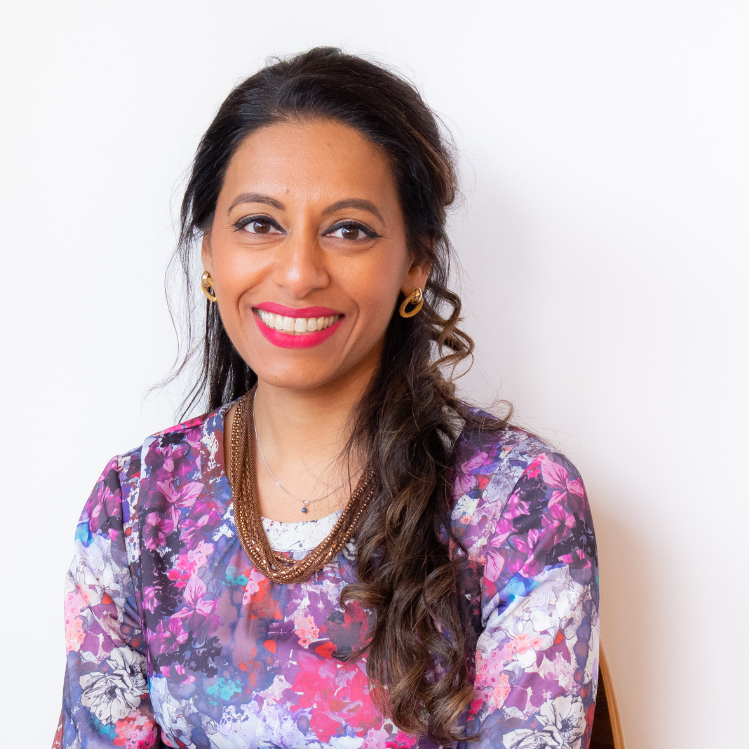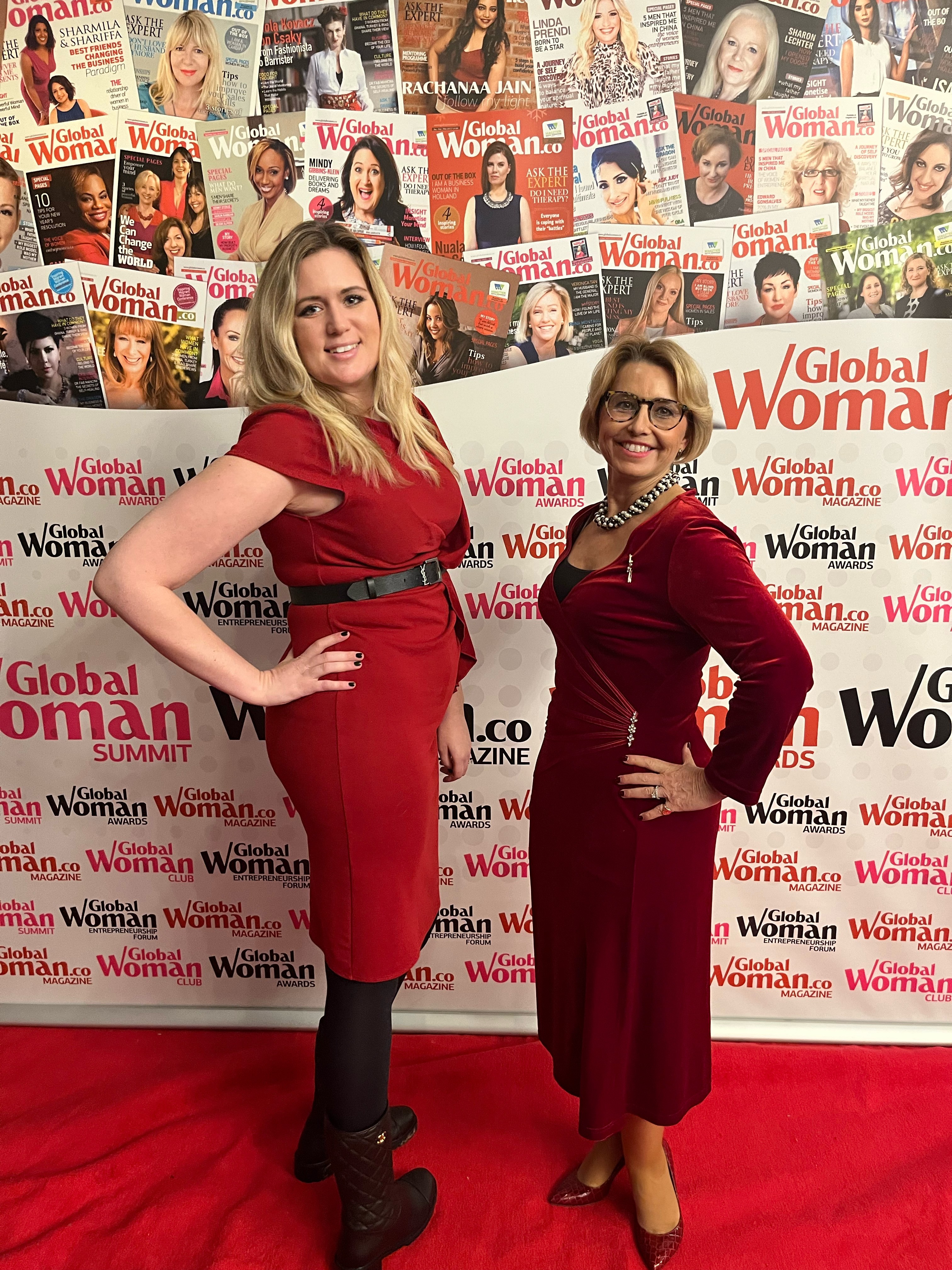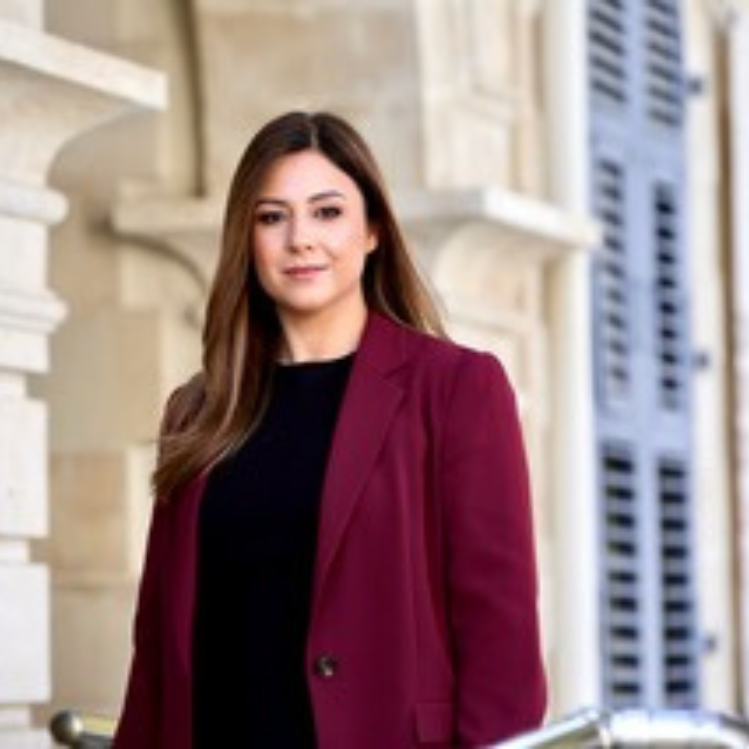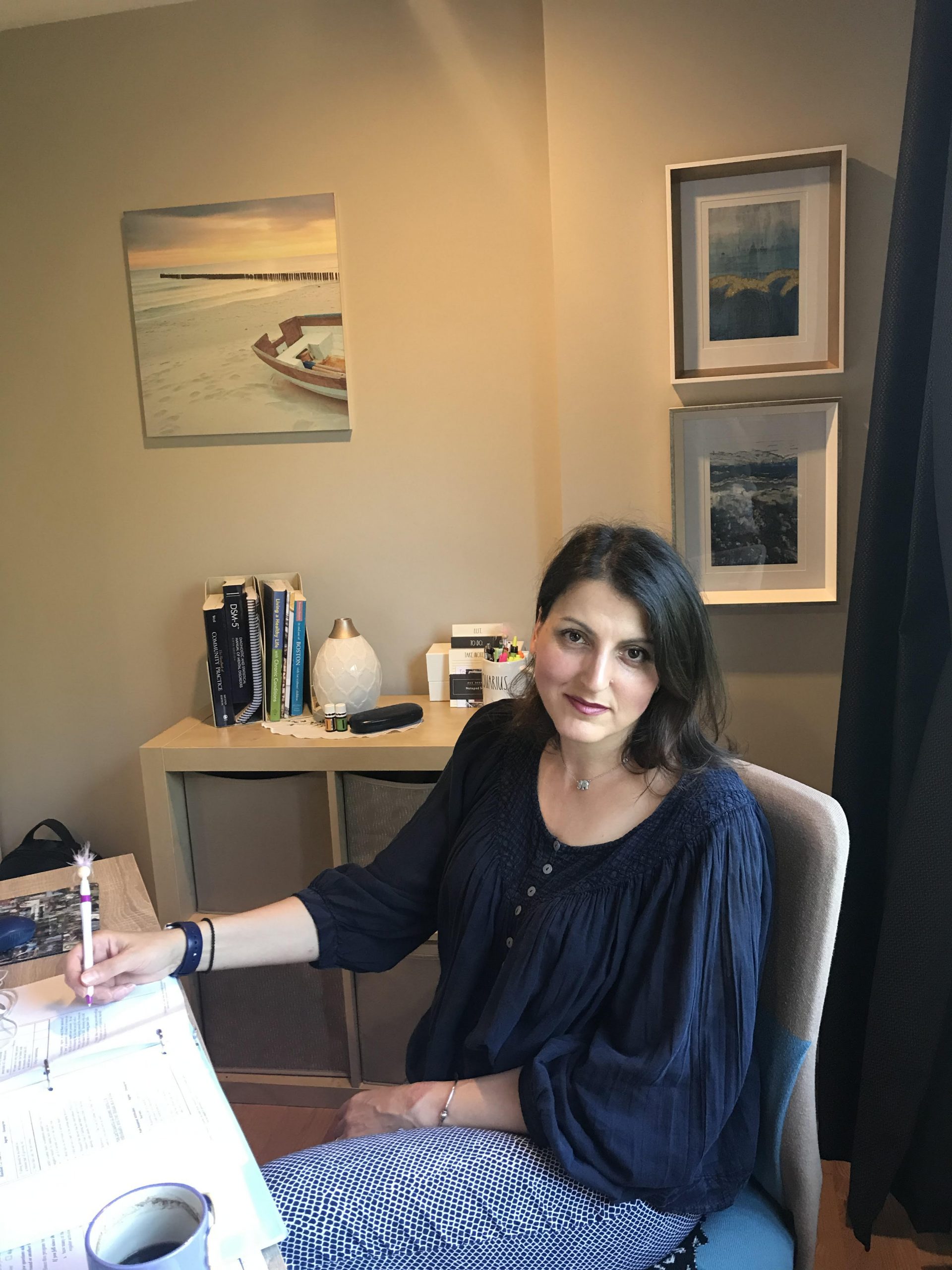
Edlira Roshi: Sunrises and Sunsets, Juggling Life as a Mother and Caregiver
By Sujany Baleswaran
With a gun to her forehead in the midst of the turmoil in Tirana, Edlira Roshi finally made the hesitant decision to leave home and seek a new life on the other side of the world. The mother and caregiver described her move as brutal as she started her life alone in Massachusetts at just 22 years old. Today, she has established a career in healthcare, determined to constantly expand her knowledge and is Master Trainer for an Evidence-Based Program, Savvy Caregiver, a program that is tailored specifically to the caregivers caring for their loved ones with Alzheimer’s or related dementias.
You dedicate so much time to caring for the elderly, and you’re constantly looking to improve your skills. How did your healthcare career begin?
My father is a retired forensic doctor, so healthcare, nutrition, and helping people were ingrained in me before I came to the US. My healthcare career started when I landed a job at Lawrence General Hospital as an operations manager for the department of professional development. I had the best boss one could ever ask for – she saw the potential in me and influenced me to grow more in that direction, but deep inside me, I could feel that I was more drawn towards education or consulting. I had the opportunity to become a data coordinator for a nonprofit organization that offered evidence-based programs to the elderly, to help manage their chronic conditions and reduce their fear of falling by improving their balance. We worked to become better caregivers for their loved ones with Alzheimer’s or other related dementias. Learning all about evidence-based programs, and seeing the positive trend from analyzing the data, made me fall in love with this work. I am always trying to expand my knowledge so one day I can grasp the opportunity to offer these programs internationally. It is my passion to talk to people from different parts of the world, listen to their stories, and hopefully help in any way I can. You never know when an opportunity will present itself, so you must be alert and on the lookout.
You juggle your time between your family and your career. How do you balance your life between the two?
You know that saying, ‘you can buy a clock, but you cannot buy the time?’ – it could not be more relevant than the way my life is right now. There are times that I feel like a train going at a very high speed, and I must keep going so I do not end up crashing. My 15-year-old son reminds me all the time – it is not the speed which crashes the train, but a sudden stop, so the only way for me to juggle along and keep the balance is to take some moments for “ME” time, whether that is taking deep breaths, watching sunsets and sunrises, writing in my gratitude journal, writing a story or a poem, refurbishing an old furniture piece, reading a book, going for a nice walk in the neighbourhood, taking care of my houseplants (I have a green thumb, and over 90 pots of houseplants in my house), gathering with friends from all parts of the world over a good cup of coffee or tea, brainstorming with my colleagues, FaceTime with my nephew and niece overseas, conversing with my adolescent son and daughter, and the list goes on and on. I have been blessed to have found my soulmate and married my own lie detector. The love of my life keeps me grounded all the time. He is always thinking 5 steps ahead of me, and he is incredibly supportive.
A typical day for me would go like this: first, after I get myself ready and put on my makeup, I make sure my children have their breakfast, prepare their lunches, and get them ready for school. At this point, I must have my special cup of black coffee with my husband before we both go to work. The first thing I do at work is to check my emails, look at my tasks and make a priority list. Then I try to tackle difficult tasks first, usually, that involves spreadsheets and numbers and a lot of problem-solving. I’ve always enjoyed puzzles and am always discovering new Excel features, which only serve to remind me how little I really know about its full capabilities, whether it’s testing the database to improve its functionality, or simply planning to facilitate one of our many Evidence-Based Programs we offer here at Healthy Living Center of Excellence. By following this model every day, makes the rest of the tasks easier and doesn’t let the difficult tasks linger all day, which takes up brainpower and creates anxiety. Being a full-time working Mom and co-caregiver for my Dad, I am the perfect example of the “sandwich” generation. After I pick up the children from school and make sure to help them with their homework, and give them a healthy snack, I drive them to their after-school activities. While they are doing all that, I will stop by my parents and Mother-in-law to make sure their needs have been met for the day. Dinner time is precious, as we all sit together as a family and have a nutritious meal, we talk about how everyone’s day was and decide what will be cooked for dinner the next day. Living an everyday life while facing a global pandemic has not made things easier for sure, and I know it’s a lot on my plate. I consider myself so lucky to work in an organization where I have grown so much professionally and have the appreciation of my peers.
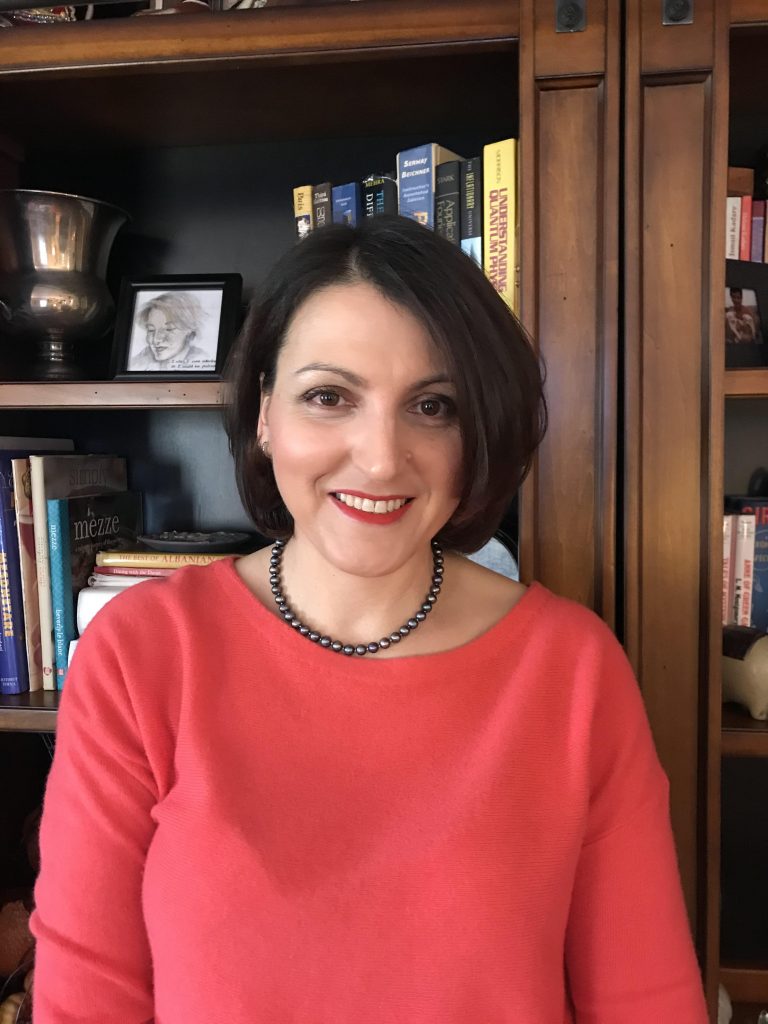
You immigrated alone to Massachusetts at 22 years old. How was this period of your life, and how did it shape who you are today?
Immigrating to the United States was by far the hardest decision I had to make, as I had already visited the USA through my first job as a nanny 2 years before I immigrated here, and I was not completely convinced that this was the place I would call home. I already had a home, a beautiful one. I have a great family, amazing friends I met at university to become an educator, and had planned a beautiful life ahead right where I was. In 1997, that dream was broken to pieces. The turmoil had started in Tirana, and blind bullets were flying everywhere. People were in awe of what was happening, and how they could be safe. One beautiful day as I was returning home from work, a maroon Fiat 31 drove by me and the driver, a very handsome young fellow with black, curly hair, decides to point his gun at me. At that very moment, the world came to a halt for a few moments, and my whole life flashed before my eyes. Then, he pointed the gun up in the air and started shooting and laughing as hard as he could and quickly drove away. That laugh was rooted in my brain, and it still echoes from time to time as a reminder of where I came from. I am thankful to the black curly-haired young man for not killing me, and at that moment, it dawned on me that the cheapest thing at that time in Albania was life.
That was the moment that I decided to accept the job as a nanny for a year in Turkey, with the same Australian family that was stationed in Albania. Yes, you could say my emigration journey started a bit earlier than 22 years old, but this time it was different, and it was very brutal, and I was all alone in a giant country. I did struggle a lot in the first years as I was still holding on to my past, and I could not let go of it. I learned the hard way that I would need to grow up and face the reality and begin to adapt to my new home. My Godfather used to say to me – with all these tears you are wasting, you could have had your own little river by now, so let’s help you learn driving to start with. So, there I went, to the cemeteries to practice driving with my Godfather; to the place where he was going to be buried, how morbid that sounded at the time, but he managed to make it funny by saying – “Look on the bright side: If you hit someone, they are already dead! But still, be mindful and careful as I have my family here.” When I was young, I had a special bond with my maternal grandparents. I still do, even though they are no longer with us. They took care of me and my two brothers in their home in Tirana when my parents were sent to another city to “serve the country”. They were there for 17 years, up until communism fell in Albania. For the most part, we saw Mom and Dad only on the weekends. I learned how to make coffee at a very young age, as I wanted to be the only person to master the art of making coffee from my Grandpa. I enjoyed sipping the dark black coffee from my Grandpa’s cup and listening to his life stories every day. One day while I was making his Turkish coffee, I asked him whether it is better to be rich or poor, as, in my 6-year-old brain, the two seemed to be very problematic states. He was so surprised by my question, coming from such a young kid, and he asked me to give him the little coffee spoon. He grabbed the spoon handle right in the middle with his thumb and pointing finger, and the tip of the spoon was facing down, while the tip of the handle was facing up. He said, “Let’s pretend that here at the bottom are the poor, and here at the top are the rich, and we are right here in the middle, where I have my two fingers. Now, if this happens,” he said, as he turned the spoon upside down without moving his fingers, “The rich are all the way down, and the poor are all the way up, but we remain the same. So, my dear, no need to stay lazy, or be greedy, always be kind, and choose the right thing to do, and listen to that inner voice of yours.”
What is your favourite aspect of your job, and what do you find the most difficult?
My favourite aspect of my job is that it doesn’t even feel like a job – everything about it comes naturally to me, whether is it facilitating a workshop, leading a training, or analyzing the data collected, it all helps towards building strong relationships with our participants, partners, and stakeholders.
The most difficult part of it would be making sure my work is understood by all and delivered flawlessly. If a report is not understood easily by all parties, I have not worked hard enough to convey it.
Another annoying part of my job would be something as redundant as just entering data because if it doesn’t challenge me, it doesn’t change me, and if it doesn’t change me, I do not see progress.
No progress equals no growth.
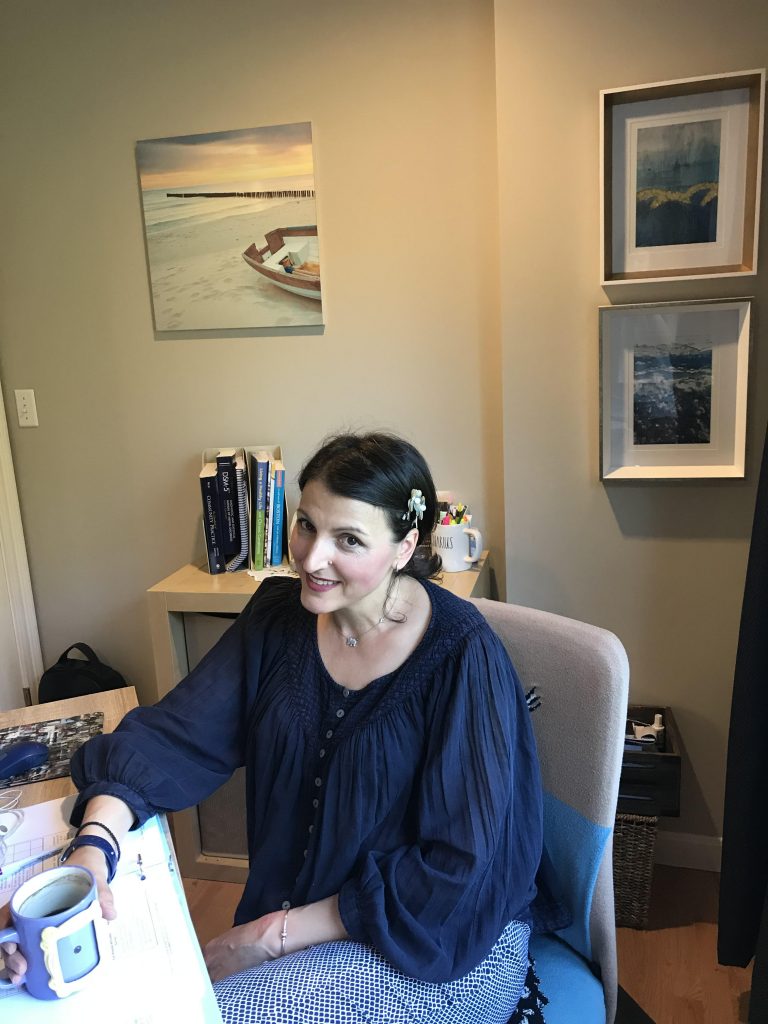
You have written a beautiful piece called ‘Sunrises and Sunsets’ – have you always been interested in creative writing? What inspires you to write? Can you tell us more about your writing process?
It’s been said that the shortest distance that exists between two people is a story, but I bet I can travel the longest distance in such a short time just by asking, “What is your name?” My name is Edlira, it means “purity” in Albanian, used figuratively to describe the purity of a language. My name is Edi for short, but my name also is a wife, a Mom, a daughter, a sister, an aunt, a caregiver, a cook, a plant parent, a coffee lover, a database specialist, and much, much more. I wrote this story for our caregivers’ blog at the time. It speaks volumes to me, as I am a Master Trainer for an Evidence-Based Program called Savvy Caregiver, a program that is tailored specifically to the caregivers caring for their loved ones with Alzheimer’s or related dementias. I wanted to share my journey as a caregiver, so I can relate to the caregivers in the communities we serve. I am very interested in writing and continue to write stories whenever I have some spare time. My Godfather influenced me to keep writing, and when he passed away 3 years ago, he had started writing a piece in Italian and did not have the stamina to finish it, so he asked me to end it however I like to. So, what inspires me to write is the passion for storytelling, connection, and continuity in life. Whether it is bonding with my niece and nephew, or listening to stories from my parents, or simply watching my children grow, inspiration is everywhere you feel it. During Covid, I have witnessed and experienced some very sad stories, so there is plenty of content and inspiration, but I like to tell stories that have a positive light, and because I’m an immigrant and I’m writing in a second language, it is very challenging. The tongue is one thing, and the mind is another, and the mind speaks faster than the tongue follows. There are words or phrases that I find very challenging to properly express in another language, but then again, if it’s not challenging, it’s not that beautiful…
Where do you see yourself in 5 years?
That is the question I ask myself every time, and the answer is consistent, hopefully in a better state than now. You do not have to have your own business to be a boss, although I have been thinking about ideas like that a lot. It is a mindset, after all. Even if I am working for a company, I can still approach it as I would my own business. My career is my business, and I always find the need to market myself and my abilities just as you would market a product. So, to see a better self-image in five years, I must rewire the way I think and act like the person I want to become. The obvious way to do such a thing is to invest in my goal when the opportunity presents itself, and gear towards the point of no return, that is by far, the ultimate way to hold myself accountable.



